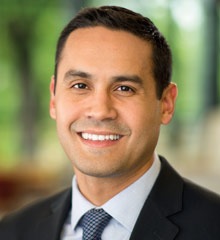
Three Notes on Scholarship and Teaching from the AAR/SBL Annual Meetings
(Eric)
I’ve started wondering recently if scholarship boils down to the courage to say something aloud, the courage to say something in the midst of a chorus full of others saying similar or different things. This same description could well be applied to teaching as well. There are a number of reasons why our scholarship and our teaching should be mutually reinforcing, but my experience and that of many of my friends in the profession is that this is not the case. One scholarly obligation too easily cannibalizes the other.
At my best, my scholarship both feeds and is fed by my teaching. The things I have written can 
provide students a clear starting point for their study so that our class time can focus on integration and the construction of new insights. Plus, as we teachers know full well, teaching something is the best way to learn something. We also know that students can sometimes ask the right question that will send us along a path of discovery. Teaching can be that imaginative spark of the scholar. Scholarship can be that imaginative spark of the teacher. And yet many of us will find ourselves reading lofty papers full of brilliant ideas this weekend at the SBL/AAR meetings but rarely finding a way to teach this awesome stuff to our students.
I have no magical solutions to resolving this tension so many of us feel between thriving as teachers and scholars alike. But the first step may be to say (and perhaps even believe or hope against hope) that these duties of the professoriate ought not be at odds. What makes for fine teaching and scholarship alike is the boldness to say something.

(Kate)
I have so far not been very successful at integrating research and teaching. My scholarship seems so specialized, and our Religious Studies department is so small (only 1.5 full-timers) that it seems almost too luxurious to teach what I actually study. Instead, I generally try to offer classes that I think students will want to take. In my first year of teaching, I taught a Religion and Economics class (based on my dissertation research) to only six students; even our business majors weren't interested. And just this week, the course I had planned to teach on environmental ethics was cancelled due to under-enrollment, despite my talking it up with colleagues in relevant departments. I tend to get the best enrollment in more general courses like World Religions, Christianity, or Women and Religion. The Christian ethics topics seem to be alienating for Alma Students... or maybe it's just me. Does anyone else in the undergraduate world have this problem?
(Roger)
This is really a bad confession, but when I began teaching as a PhD student, I planned class content  around my comps and dissertation. The reasoning was purely pragmatic. Teaching can take a lot of time, and I figured that this could save me a few crucial hours every week. To my surprise, these two years of adjuncting as a doctoral student was a wonderful lesson in the integration of teaching and scholarship. The outpouring of new literature on biblical studies is enormous, but for the sake of our students, responsible teachers must stay on top of these trends at least somewhat. It’s certainly much easier to do when you are preparing a literature review. I think students can tell when their teachers are in discourse within greater academic discourse. Unfortunately, the constant name-dropping that I do probably might be a part of that.
around my comps and dissertation. The reasoning was purely pragmatic. Teaching can take a lot of time, and I figured that this could save me a few crucial hours every week. To my surprise, these two years of adjuncting as a doctoral student was a wonderful lesson in the integration of teaching and scholarship. The outpouring of new literature on biblical studies is enormous, but for the sake of our students, responsible teachers must stay on top of these trends at least somewhat. It’s certainly much easier to do when you are preparing a literature review. I think students can tell when their teachers are in discourse within greater academic discourse. Unfortunately, the constant name-dropping that I do probably might be a part of that.